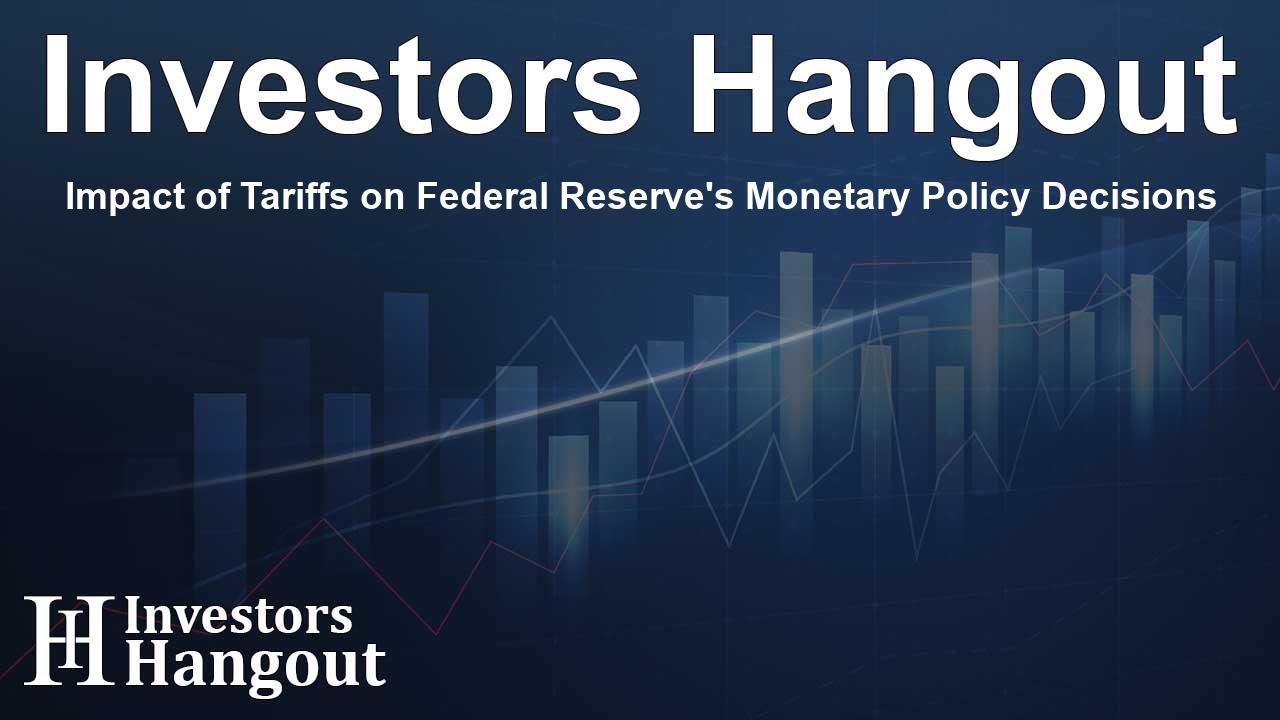Impact of Tariffs on Federal Reserve's Monetary Policy Decisions

Understanding the Influence of Tariffs on Monetary Policy
Jerome Powell, the Chair of the Federal Reserve, expressed that the central bank's approach to monetary policy has been significantly influenced by tariff strategies initiated by former President Donald Trump. During a recent panel discussion, he revealed insights about how these tariffs affected the central bank's decisions regarding interest rates.
The Role of Tariffs in Rate Decisions
Powell indicated that, without the tariff impositions, the Federal Reserve would have more likely reduced interest rates during the current year. The announcement to raise tariffs on imported goods led the Fed to reassess their position thoroughly.
Key Statements from Powell
During a discussion at the European Central Bank forum, Powell noted, “In effect, we went on hold when we saw the size of the tariffs and essentially all inflation forecasts for the United States went up materially as a consequence of the tariffs.” This statement encapsulates the central bank's need to remain cautious in the face of shifting economic indicators driven by external pressures.
Current Interest Rate Stance
As it stands, the Federal Reserve has chosen to maintain its current interest rates despite the intense scrutiny and pressure arising from political circles. Powell emphasized that decisions concerning rate cuts would be dictated by forthcoming data. He stated, “I wouldn’t take any meeting off the table or put it directly on the table.” This flexible approach suggests a nuanced understanding of how external influences can sway financial strategies.
Political Pressures and Economic Impacts
This context is crucial particularly as President Trump has vocally criticized Powell and his policies. Just prior to Powell's comments, Trump accused the Fed Chair of keeping interest rates artificially elevated and asserted that rates should drop significantly to stimulate economic growth.
Influence of Political Figures on Fed Decisions
Moreover, the Fed faces evident political pressures. Senator Elizabeth Warren has joined the discourse, criticizing Trump’s tariff measures, which she believes disrupt the Fed's ability to implement necessary interest rate reductions for the benefit of the American public.
The Future of Powell's Tenure
Adding to the complexity, the discussions regarding Powell’s future position have intensified, especially as Treasury Secretary Scott Bessent has suggested he would operate under the President's directives concerning the Fed’s leadership after Powell’s term concludes in May 2026. Such remarks have naturally fueled speculations about potential shifts in monetary policy under future leadership.
Market Reactions and Expectations
Market participants are closely monitoring these developments, as they could alter economic forecasts and investment strategies. The interplay between political factors and monetary policy will likely continue to evolve, impacting everything from inflation rates to stock market performance.
Conclusion
In summary, Jerome Powell's remarks illustrate a fundamental relationship between governmental policies on tariffs and the Federal Reserve's decisions on monetary matters. As we look to the future, it remains critical to observe how these dynamics unfold.
Frequently Asked Questions
What did Jerome Powell say about tariffs and monetary policy?
Jerome Powell stated that tariffs influenced the Fed's decision not to reduce interest rates, suggesting that higher tariffs raised inflation forecasts and led to a more cautious approach.
How do tariffs impact the Federal Reserve's interest rates?
Tariffs can create inflationary pressures that influence the Fed's decisions on interest rates, potentially leading them to maintain higher rates to manage inflation.
What is currently the Fed's stance on interest rates?
The Fed has maintained its current interest rates and indicated that any adjustments would depend on future economic data.
What role does political pressure play in Fed decisions?
Political pressures, such as criticism from public figures including the President, can influence how the Fed approaches monetary policy and interest rates.
What are the potential future implications for Powell's position as Fed Chair?
Speculations about Powell's future arise from comments made by Secretary Bessent, suggesting political dynamics could affect leadership changes at the Federal Reserve.
About The Author
Contact Owen Jenkins privately here. Or send an email with ATTN: Owen Jenkins as the subject to contact@investorshangout.com.
About Investors Hangout
Investors Hangout is a leading online stock forum for financial discussion and learning, offering a wide range of free tools and resources. It draws in traders of all levels, who exchange market knowledge, investigate trading tactics, and keep an eye on industry developments in real time. Featuring financial articles, stock message boards, quotes, charts, company profiles, and live news updates. Through cooperative learning and a wealth of informational resources, it helps users from novices creating their first portfolios to experts honing their techniques. Join Investors Hangout today: https://investorshangout.com/
The content of this article is based on factual, publicly available information and does not represent legal, financial, or investment advice. Investors Hangout does not offer financial advice, and the author is not a licensed financial advisor. Consult a qualified advisor before making any financial or investment decisions based on this article. This article should not be considered advice to purchase, sell, or hold any securities or other investments. If any of the material provided here is inaccurate, please contact us for corrections.
